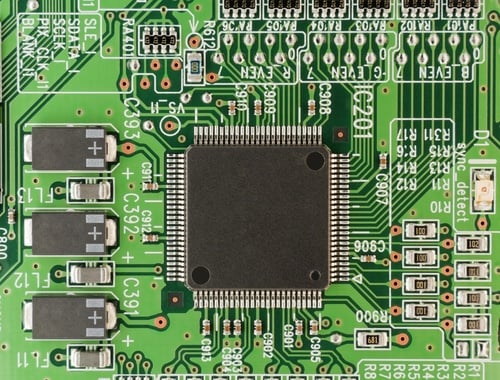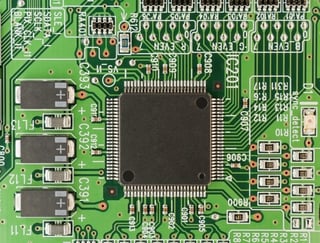01.04.2015
Are Local Fiducials Necessary?


As pick-and-place machines become more precise, some assembly shops are doing away with local fiducials. Why take up real estate with non-functional markings when it's not absolutely necessary? Of course, it's never that black and white. Deciding whether local fiducials are necessary depends on a few different factors. Here they are.
1. Board size
More than anything, the decision of whether to use local fiducials depends on board size. If the board is small enough, globals can act as locals, as the global fiducials can situate a relatively smaller surface area. But as board sizes increase (anything over 8 x 8, give or take), you’ll need help from local fids to achieve perfect placement.
2. Component Specific
Components with lower pitches and pin counts may not require local fiducials for placement. But the finer a component's pitch and the higher its pin count, the more necessary it'll be to use local fiducials for added precision. Generally speaking, any component with a pitch under 1.0mm will need local fiducials. BGA's with pitches under 0.5mm - 0.8mm generally require local fiducials.
3. Your Machine
The use of local fiducials largely depends on the type of machines. It’s always important to discuss pick-and-place machine design and specs before deciding whether it’s necessary to include local fiducials. And lastly, even if local fiducials aren’t absolutely necessary to place a fine pitch component, having them designed into the board could come in handy for repair and rework, not to mention peace of mind.
What's a fiducial?
Fiducials (or fiducial marks) are target registration marks printed on the top of the copper layer of a PCB. In general, they provide common measurable points for all steps in the assembly process, allowing all automated assembly equipment to accurately locate the circuit pattern. There are two types of fiducials: global and local.
Global fiducials are used to locate the position of all features on an individual PCB, and they’re a must for a pick-and-place machine to situate a board to the CAD data programmed into the machine. Local fiducials are used to locate the positions of fine pitch components such as QFPs and BGAs, which require precise placement.


